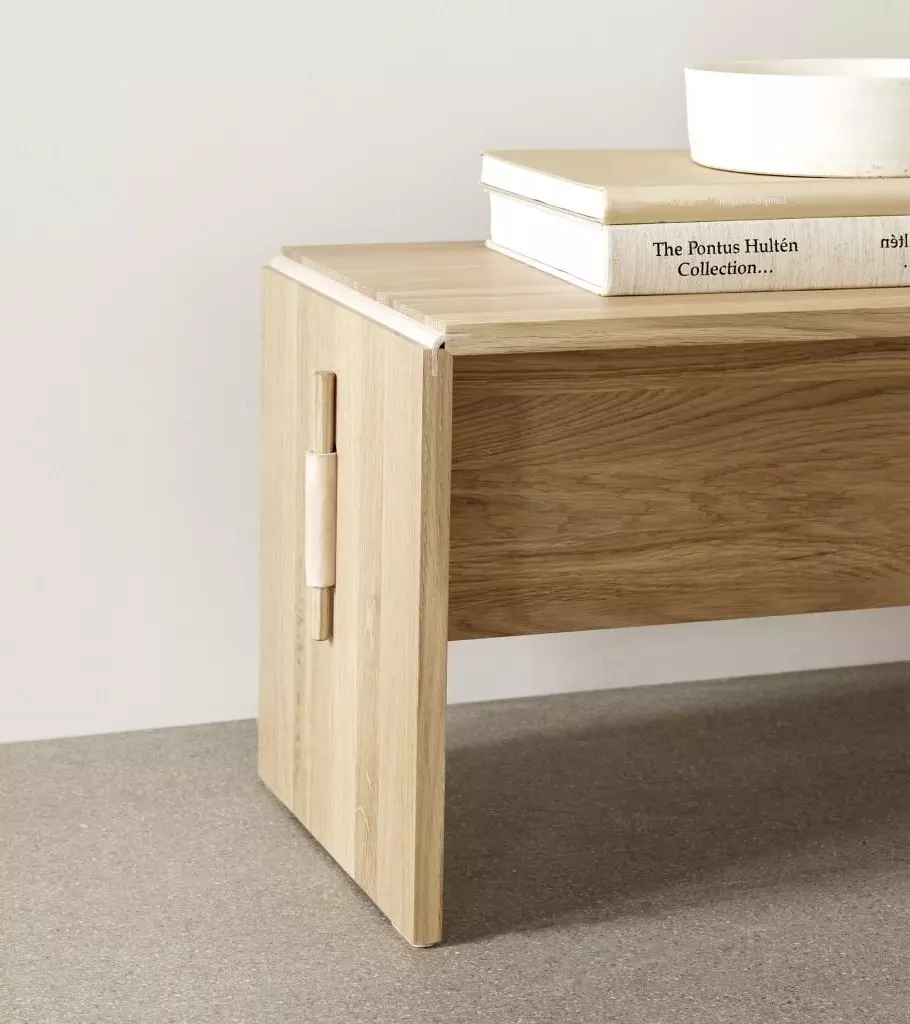For many, design is about organizing our surroundings with beauty. A little broader, it is also about the idea of the good life – that the home is both functional, but also gives peace to recharge. The home must at the same time inspire and be the safe base that allows us to meet the world with renewed energy and curiosity.
We see great value in establishing design principles. They can act as positive resistances and help unleash creativity in a focused way for designers and help ensure that the right problems are solved. Furthermore, TAKT has a strong focus on sustainability and certification with the EU Ecolabel which demands a series of outcome requirements.


Unfortunately, the design industry has largely forgotten the slightly broader perspective; that objects can also represent good values in addition to neatness. “The good taste is always bad” said Poul Henningsen (PH), the danish architect and critic, and in Denmark we have a proud tradition of design objects that represents more than just simply ‘ the good taste’.
We are facing a paradigm shift in relation to production and consumption, and we have to remember that when design is at its best, it helps solve problems and find answers.
That is why it requires special attention when we spend resources on producing new.

Both designers and industry have a great responsibility to ensure that all design objects are produced responsibly in relation to people and material consumption. The consumer culture is facing a fundamental change, where we must learn to consume and produce differently and with greater care. Where the generations after World War II lifted the material prosperity of the many, we must now save the planet!
As a consumer, you are often met with empty phrases about sustainability. It is an industry where there is a lot of greenwashing, and it can be difficult to understand where you as a consumer can make a difference and thus contribute to a world with more sustainable design.
The great commodity of the future is trust. You must be able to trust that the product you buy is properly produced, the materials are recyclable and that the people who have participated have had proper working and salary conditions.
TAKT believes that this trust is absolutely crucial and that is why we use the EU Ecolabel as a certification on all our products, which ensures that we live up to a standard.
On all our furniture there is a third-party approval that acts as the consumer’s assurance that what we say also live up to international standards for sustainability.
Our need for new furniture and designs that support everyday needs will continue to evolve as our lifestyles change. We must not stop completely improving our everyday lives and designing new furniture and objects, but instead produce and distribute differently and with greater care. Good design must continue to bring joy and presence in everyday life.
In order to achieve that, we have set up 10 points, we call them TAKT Eco System Design Principles which we believe a good design product should contain. We use the principles when we develop new furniture together with designers.

Throughout history, architects and designers have regularly set criteria for how to ensure both good architecture and good design objects. If we go all the way back to the Roman architect and engineer Vitruvius, the world’s first architectural theorist, we find the earliest design principles. Vitruvius believed that every building should stand on three legs; Firmitas, Utilitas and Venustas. Durability, usability and beauty. These principles are very general, but in their basic understanding they are fully valid today, more than 2000 years after they were written down.
In the late 1970s, Dieter Rams became increasingly concerned about his own contribution to a world of more and more objects, asking the question: “Is my design good design? “. His answer was expressed in 10 principles of good design.
Later, Muji expressed their design values in 6 principles of how to design.
We see great value in establishing design principles. They can act as positive resistances and help unleash creativity in a focused way for designers and help ensure that the right problems are solved. Furthermore, TAKT has a strong focus on sustainability and certification with the EU Ecolabel which demands a series of outcome requirements. Here our design principles help to achieve the goal.

